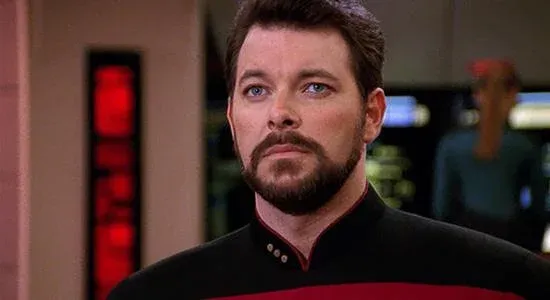The Frakes Factor: A Directorial Deep Dive
Jonathan Frakes' impact on the Star Trek universe as both an actor and director is immeasurable. His directorial style, shaped by his extensive experience as Commander William Riker in "Star Trek: The Next Generation," seamlessly combines dynamic visuals, character-driven storytelling, and emotional resonance.
This essay delves into his profound influence on Star Trek films and episodes, highlighting his adept navigation of intricate narratives, thought-provoking themes, and his uncanny ability to capture the very essence of the franchise's spirit.
Directorial Showcase: Key Episodes & Films
"Cause and Effect" - TNG
Frakes' directorial journey found its inception within "The Next Generation," where he helmed several cornerstone episodes. One standout example is "Cause and Effect," an episode that masterfully delves into the complexities of time loops and suspense. Frakes skillfully balanced the tension between repetition and progression, ensuring that the audience remained engaged and intrigued as they pieced together the puzzle alongside the characters.
Director's Log: This episode is famous for its "cold open," where the Enterprise is destroyed before the opening credits even roll. To create the disorienting feeling of the time loop, Frakes used quick cuts and overlapping dialogue from previous loops. The captain of the other starship, the USS Bozeman, was played by Kelsey Grammer in an uncredited cameo, a favor to the show's producer who was a fan of *Cheers*.
"The Offspring" - TNG
"The Offspring" stands as another pinnacle of Frakes' directorial prowess. In this poignant episode, he exhibited a deep understanding of character emotions, particularly in his portrayal of Lieutenant Commander Data's longing for family and identity. The delicate moments between Data and his android daughter, Lal, were meticulously crafted under Frakes' guidance, resonating powerfully with viewers and highlighting his ability to create a genuine connection between characters and audiences.
Director's Log: Jonathan Frakes has stated this is his favorite episode he ever directed. The script, written by René Echevarria, was so strong that it required very few changes. The episode won the 1990 Hugo Award for Best Dramatic Presentation, a testament to its powerful storytelling and direction.
"Past Tense" - DS9
Frakes' excellence extended to other series. "Past Tense" in "Star Trek: Deep Space Nine" showcased his commitment to addressing contemporary societal issues. By exploring themes of poverty and inequality through the lens of science fiction, Frakes adhered to Star Trek's tradition of social commentary, amplifying its relevance to real-world concerns and bridging the gap between speculative fiction and pressing matters of the present.
Director's Log: This two-part episode, set in 2024, depicted "Sanctuary Districts" for the homeless, a concept that writers worried was becoming presciently accurate. Frakes directed Part II, handling the intense action sequences and the dramatic resolution as Sisko must take on the historical role of Gabriel Bell to ensure the timeline is preserved.
Star Trek: First Contact (1996)
"Star Trek: First Contact" emerged as a highly acclaimed film due to its blend of action, philosophical depth, and Frakes' adept directorial choices. He successfully translated the urgency of the Borg threat to the cinematic canvas while maintaining the franchise's focus on ethical exploration. His understanding of Captain Picard's personal issues with the Borg Queen amplified the emotional stakes of the narrative.
Director's Log: Frakes fought hard to keep the film dark and intense, clashing with producer Rick Berman who wanted a more traditional Star Trek feel. The original script involved a time-travel plot to the Renaissance and featured Q. Frakes' focus on the Borg and the action-horror elements is credited with making the film a critical and commercial success, often considered the best of the TNG films.
Star Trek: Insurrection (1998)
"Star Trek: Insurrection," while receiving more mixed reviews, still bears Frakes' directorial influence and dedication to ethical conundrums. The film's exploration of the pursuit of eternal youth and the implications of uprooting a society for personal gain aligned with the core themes of the franchise. Frakes' choices allowed "Insurrection" to remain true to the franchise's ethos.
Director's Log: Frakes has jokingly referred to this film as "the lightest of the TNG movies" and essentially a "big episode of the show." The plot was intended as a deliberate change of pace after the darkness of *First Contact*. The original subtitle was "Stardust," which was the name of the popular song by Hoagy Carmichael that Riker and Troi dance to.
The Legend of Riker's Beard
The concept of "Growing the Beard" refers to a notable shift in the quality and tone of "The Next Generation" that coincided with Jonathan Frakes growing a beard for his character, Commander Riker, at the start of Season 2. This change marked a turning point where the show began to explore deeper, more complex narratives.
Frakes' contributions as both an actor and director were pivotal in this evolution. The term "Growing the Beard" has since entered TV Tropes lexicon as a symbol for a show that has found its footing and hit its creative stride, a positive impact largely attributed to the era Frakes helped define.

Conclusion
Jonathan Frakes' multifaceted impact on the Star Trek universe is a testament to his exceptional talents. His ability to combine dynamic storytelling, character development, and thematic exploration has left an enduring legacy. From his standout "TNG" episodes to his directorial efforts in Star Trek films, Frakes' creative vision has been a crucial force in shaping the franchise's narrative trajectory.
More recently, Frakes has directed multiple episodes for *Star Trek: Discovery* and *Picard*, and he helmed the critically acclaimed and fan-favorite crossover episode of *Strange New Worlds*, "Those Old Scientists." As the Star Trek saga continues to explore new frontiers, his legacy remains an integral part of its ongoing journey.














